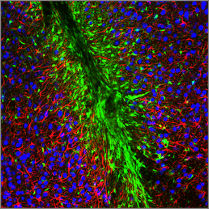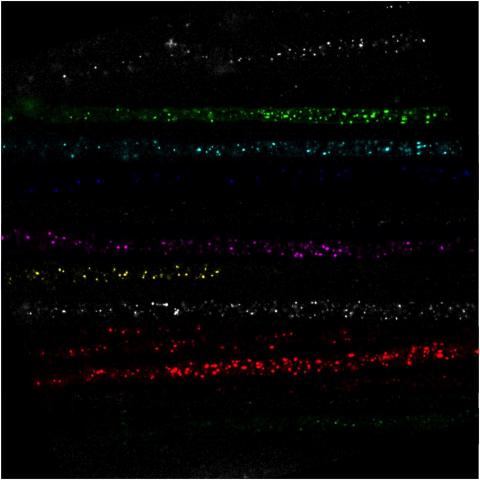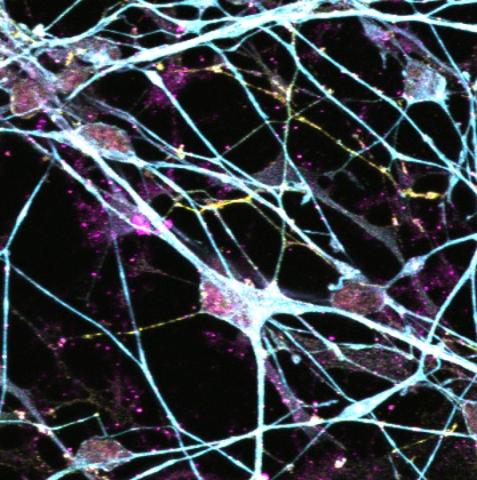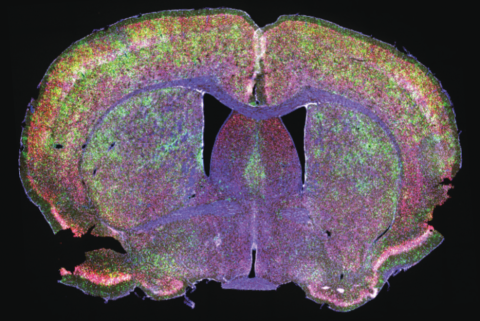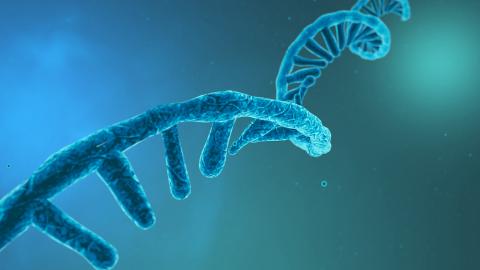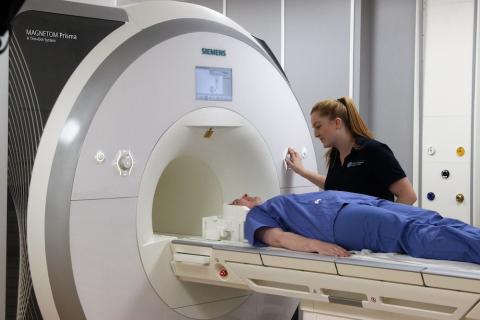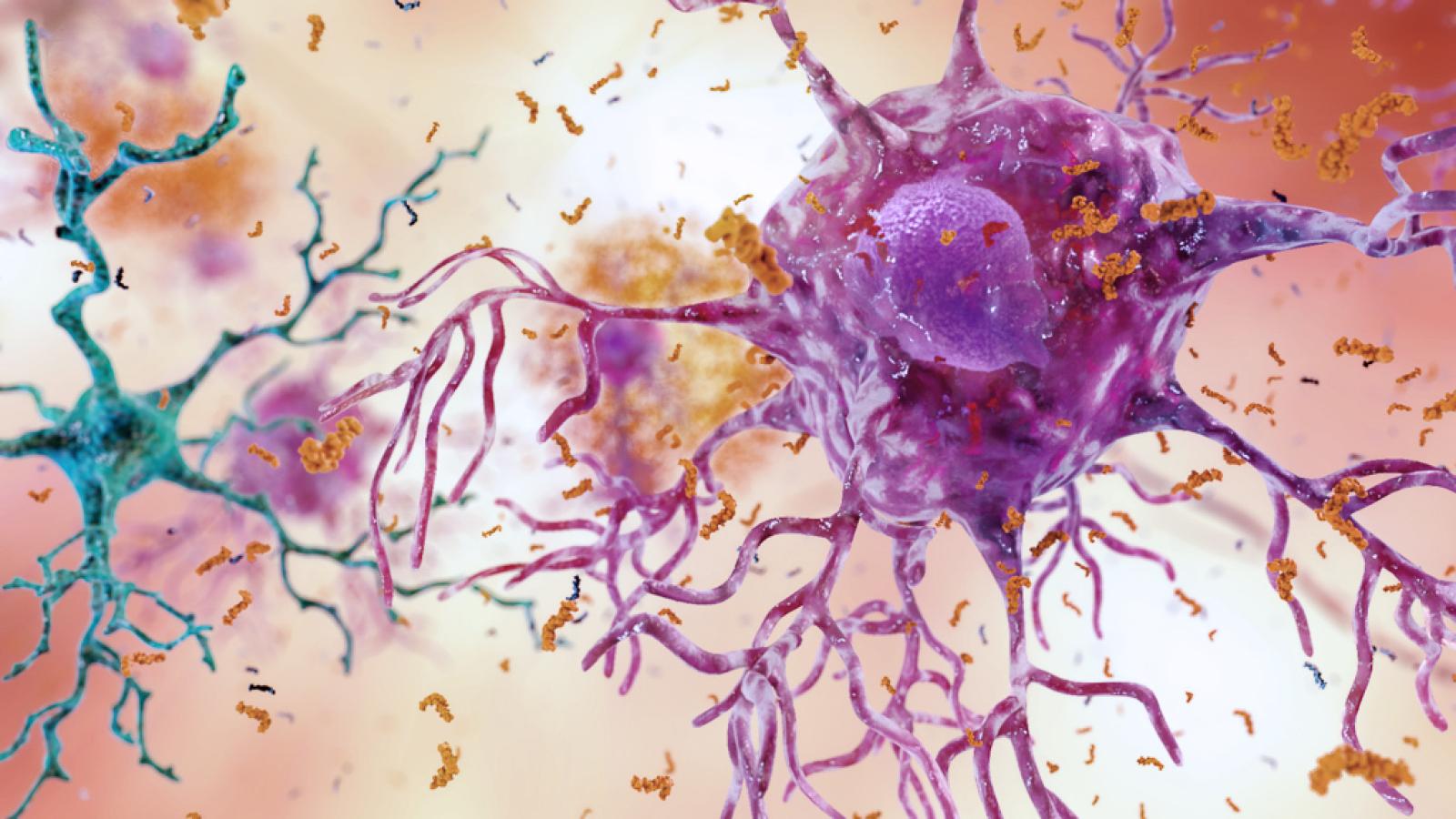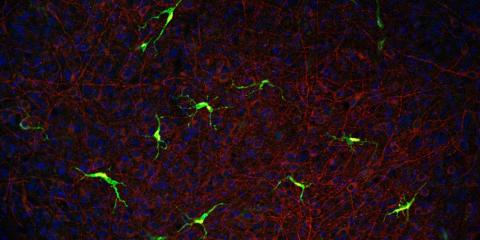The brain is highly complex and requires many different cell types to interact and function effectively for optimal brain health. For example, neurons (nerve cells) communicate information through electrical signals, while other cell types known as glia act as a support system for these neurons, enabling them to function properly. Research at the UK DRI mainly focuses on three types of glia: astrocytes, oligodendrocytes, and microglia.
- Astrocytes provide nutrients, structural support, and a stable environment for neurons
- Oligodendrocytes insulate nerve fibres, speeding up signalling
- Microglia clear away waste and fight off infections
These are just a few examples of their functions. While activation of glia in response to injury or disease can be protective, it can also be detrimental to neurons. In neurodegenerative conditions, both neurons and glia can be affected. The UK DRI aims to understand what goes wrong in these cells during neurodegeneration and why, so we can find new treatments for these conditions. Our researchers use state-of-the-art technology to examine neurons and glia, studying their structure, function, and how they interact with each other in both healthy brain ageing and neurodegeneration.
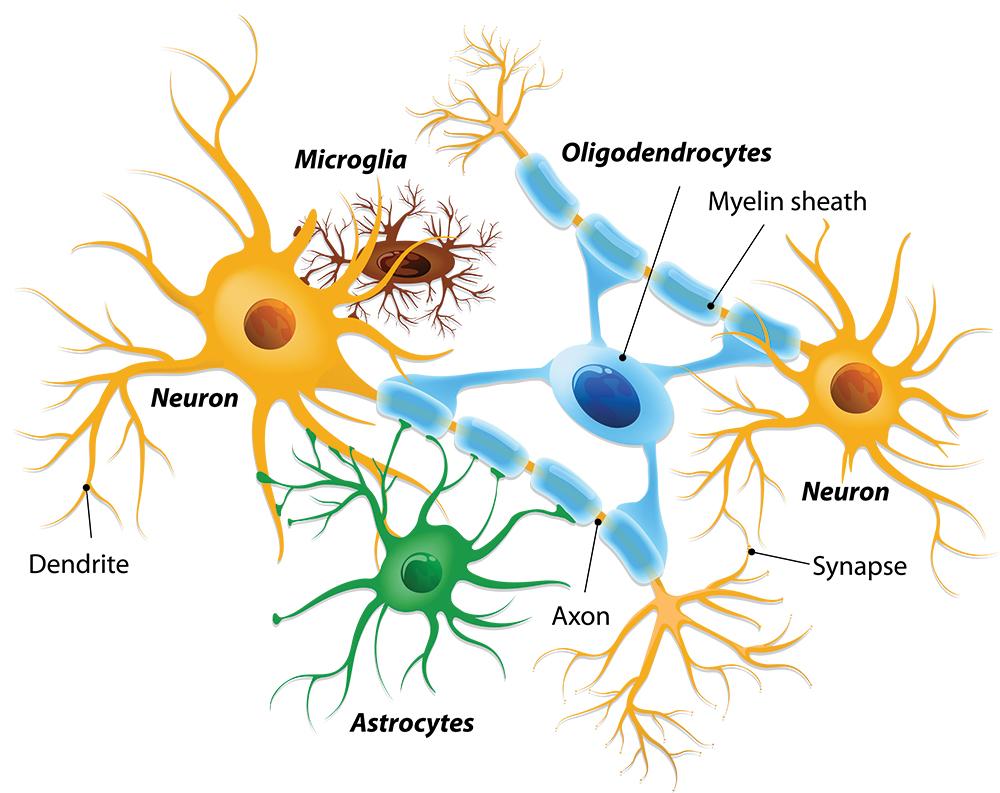
Cell types found within the brain and central nervous system. Credit: Shuttetstock/designua
Latest
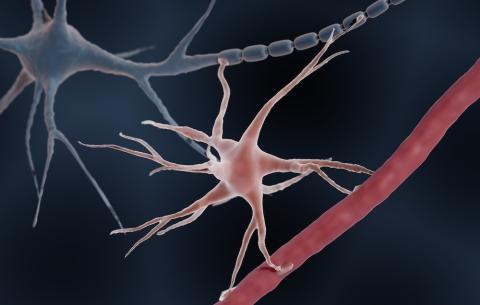
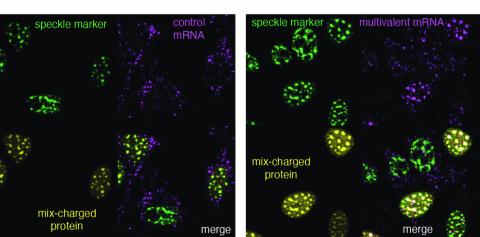
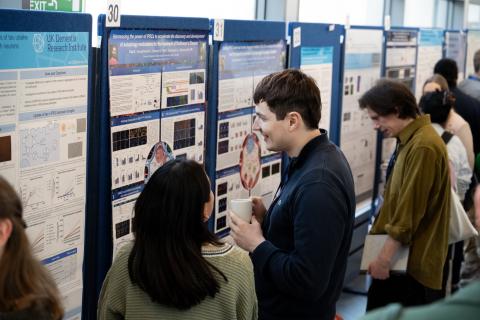
A deeper dive
Investigating the cell biology of neurons and glia involves understanding the specialised structures, functions, and interactions of these cells, which enable them to maintain brain health. In neurodegeneration, cell biology is profoundly disrupted, leading to the progressive decline of neuronal function. Understanding these cellular alterations is crucial for developing therapies aimed at slowing or halting neurodegeneration.
Neurons are the basic functional units of the brain, spinal cord, and peripheral nervous system, and are essential for communication through electrical signals. Glia, which include astrocytes, oligodendrocytes, and microglia, play a critical role in supporting neurons and promoting brain health. There is a complex interplay between glia and neurons, both in health and disease, and teasing apart the cell biology and interactions of these cells at different stages is essential to understanding disease pathogenesis and progression.
At the UK DRI, we are interested in several aspects of cell biology. In particular, we focus on:
- Elucidating the role of different organelles in neurodegeneration, such as the endoplasmic reticulum and autophagosomes
- Understanding transport mechanisms within the cell, from nucleocytoplasmic to axonal transport, and how these are impacted in neurodegeneration
- Exploring the links between the structure and shape of cells and their function
- Investigating how neurons and glia interact and support brain function, including the processes that mediate synapse loss
- Using advanced super-resolution microscopy to visualise cell dynamics and protein aggregation
- Developing cutting-edge neuronal and glial models, such as iPSC-derived cells, co-cultures, organoids, and microfabricated 3D-printed cell culture devices
Labs
